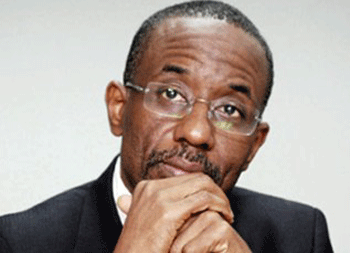 Central Bank of Nigeria Monetary Policy Committee left benchmark interest rate at 12 per cent on Tuesday as expected but took measures to tighten liquidity to support the weakening naira. Nigeria’s monetary policy committee (MPC) chose to raise banks’ cash reserve requirement to 12 per cent from 8 per cent and reduce net open foreign exchange positions to one per cent from three per cent to support the naira exchange rate.
Central Bank of Nigeria Monetary Policy Committee left benchmark interest rate at 12 per cent on Tuesday as expected but took measures to tighten liquidity to support the weakening naira. Nigeria’s monetary policy committee (MPC) chose to raise banks’ cash reserve requirement to 12 per cent from 8 per cent and reduce net open foreign exchange positions to one per cent from three per cent to support the naira exchange rate.
The naira has been hit by a fall in the price of oil, the country’s main export, and global risk aversion and has weakened by almost 3 per cent against the dollar since April. The naira closed at N160.7 against the U.S. dollar on Tuesday, outside the central bank’s N150-160 target trading band. Currency weakness is aggravating inflation as Nigeria imports 80 per cent of what it consumes.
Consumer inflation rose to 12.9 per cent year-on-year in June, up from 12.7 per cent in May. The central bank expects it to peak around 14 per cent later this year. Central Bank Governor Lamido Sanusi said that there were serious risks to growth in Nigeria’s economy due to weaker global economic growth, lower oil output, a worsening security environment and high government spending.
Sanusi also said that Nigeria was unprepared for a potential oil price slump because government was spending the country’s savings, which are stored in the excess crude account. Nigeria’s economy grew 6.17 per cent in the first quarter of this year, down from 7.68 per cent in the fourth quarter of last year. The economy is projected to grow at 6.5 percent this year, down from 7.4 per cent in 2011. The central bank has kept rates on hold since November, after six successive hikes last year, including a 275 basis point rise in October to 12 per cent, to ward off speculation on the naira. The naira fell 4.5 per cent against the dollar last year.

